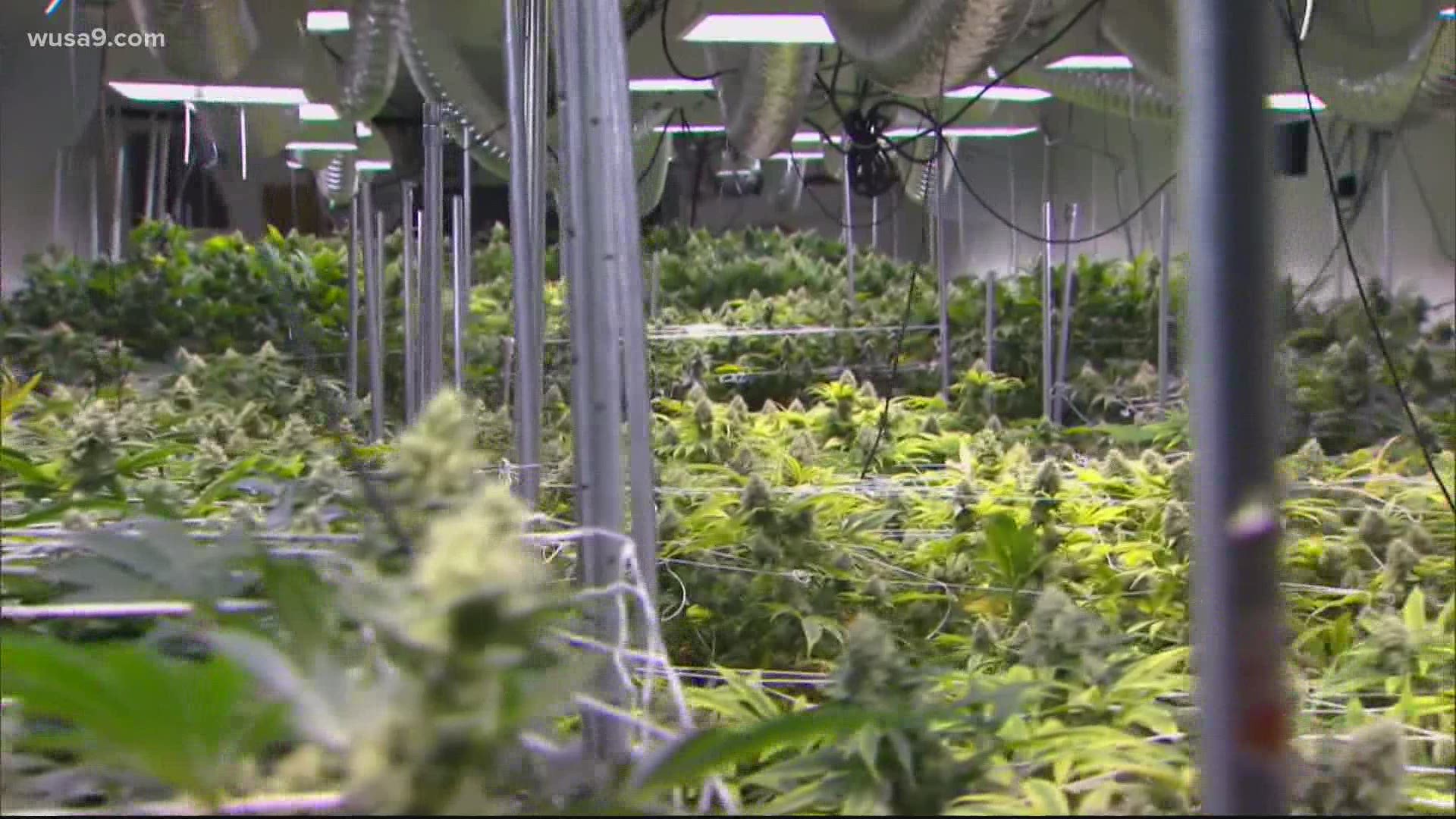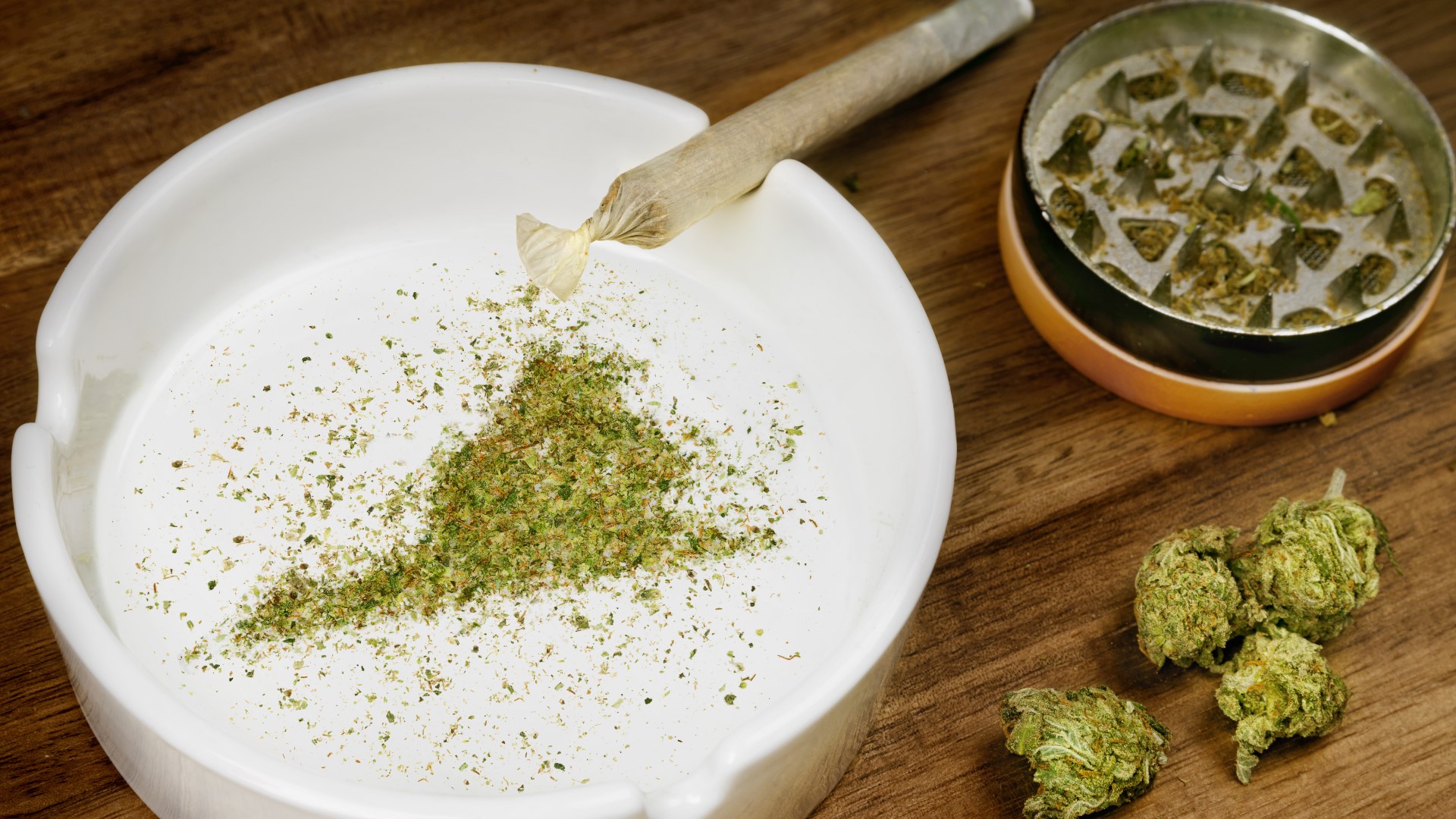WASHINGTON — It'll be a few years before Virginians can walk into a dispensary and legally buy marijuana for recreational use. As it stands, that day won't come until January 1, 2024. Until then, the Virginia legislature opted for a quick change in the laws regarding possession and plant cultivation. There is still no legal point of sale for weed in Virginia.
That first step toward legalization comes on July 1, 2021, when some specific aspects of the Commonwealth's marijuana laws get a bit more lenient. The Verify team got in the proverbial weeds of these weed laws, and talked to experts about what Virginia residents need to know if they decide to partake.
OUR SOURCES
- Jenn Michelle Pedini, the Executive Director of Virginia NORML (National Organization for the Reform of Marijuana Laws)
- Virginia State House Delegate Marcia "Cia" Price representing Newport News, VA
- Karin Porter, Virginia Criminal Defense Attorney with Price Benowitz LLP
- Virginia State Senator Scott Surovell, representing parts of Fairfax County, Prince William County, and Stafford County
Who can possess and smoke marijuana recreationally, and where?
Virginians over the age of 21 can legally possess up to an ounce of marijuana, and can use it in the privacy of their home. Our sources told us to think of the new weed allowances as similar to alcohol; public intoxication is illegal, and therefore so is smoking weed in public.
"Just in the same way that you couldn't be out in public, under many circumstances, consuming alcohol, the same is for marijuana," Virginia Delegate Price said. "This is really about what you do in your home. Once you step out of your home or get behind the wheel of a car, that is then public space."
Our experts explain that public and private entities still reserve the right to tell you what you can and can't do. For example, an employer can reject you for a job for using marijuana, and a landlord or property owner can ban use for tenants.
Can DC delivery services legally deliver and "gift" weed products to people living in Virginia?
No. When interstate travel comes into play, that's when federal policy steps in. And on the federal level, marijuana trafficking is still criminalized.
"It remains illegal in the United States to transport any cannabis across any state or territory lines," Pedini explains. "Regardless if it's from legal state to legal state, it's that interstate commerce that's still illegal."
On top of that, the gifting model used widely in the district is not allowed under the new Virginia rules. The new code is not very specific in what it allows, but permits "adult sharing" when no monetary transaction is involved. So buying a sticker and getting a pot brownie on the side is not technically legal in Virginia.
Legal "adult sharing," as our experts explained it, involves two adults over the age of 21 handing off a marijuana product to one another without remuneration. Beginning July 1, that is permitted in the commonwealth.
Can you grow your own marijuana plants?
Yes, Virginians 21 and older can grow up to four marijuana plants inside their own homes. The law allows four per household, not four per person, and all plants need to be labeled correctly.
"Each plant needs to be labeled with the individual's name, driver's license or identification number, and the fact that it is for personal use," Porter explains. "So each plant needs to be tagged with that information."
Your plants must be grown out of public view. That means if you opt to grow them outside, they cannot be visible from a public place like the street or the sidewalk.
What's on the horizon?
The Virginia legislature wants dispensary doors to open on January 1, 2024, with businesses starting the application process in 2023. Between now and then, the commonwealth is setting up an early regulatory board, similar to ABC for alcohol, which will be the authority on legal marijuana sales and licensing.
"That is going into effect and being formed on July 1, and a lot of the regulations will come from them. They'll have public meetings where people can give input," Del. Price told us. "We didn't want to micromanage at the legislative level. And that's the executive branch's prerogative to come up with the rest of the regulations."
Del. Price is also a supporter of the Clean Slate Act, which dictates that on July 1, people convicted of marijuana possession or possession with intent to distribute seven years ago and with no other convictions will have their records sealed. She says the legislature is working on expanding expungement over the next few years.
"This is just a first step. The House and the Senate both understand that we need to do more with how we're expunging the records," Del. Price says. "Studies show us that when folks can get jobs, good housing, and get the resources that they need, then the recidivism rate goes down."


